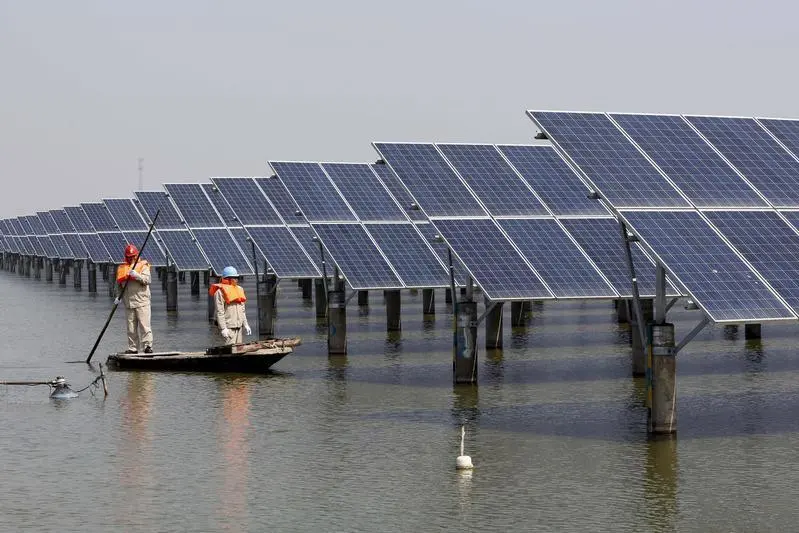PHOTO
China's solar capacity growth could slow in 2024 to 31%, a solar manufacturing association said on Wednesday, after a record 55% increase last year as the industry struggles with renewable power overcapacity and curtailment.
China has the world's largest renewable power capacity but its breakneck expansion has put a toll on the country's transmission systems, forcing some plants to curb output, a condition known as curtailment.
The world's largest producer of solar modules and other components could add 190 gigawatts (GW) of new solar capacity in 2024 under a conservative growth estimate, down from a record-breaking 216 GW in 2023, Wang Bohua, honorary chairman of the China Photovoltaic Industry Association (CPIA) said at a conference organised by the industry group in Beijing.
Under a more optimistic scenario, the industry could build as much as 220 GW, all but flat with last year, Wang said.
CPIA's deputy secretary Liu Yiyang said at the event that last year's 55% growth in solar capacity had caught the industry by surprise, exceeding previous forecasts.
Wang's presentation showed that at least 38.8GW of planned photovoltaic (PV) manufacturing capacity has been cancelled or suspended, as well as 3.2GW of other solar components.
Jin Lei, director of the information technology division at the Ministry of Industry and Information Technology, said some planned investments have been cancelled or paused as a result of the overcapacity, which has pushed solar component prices to historical lows and led to job losses in the sector.
A CPIA analysis of 62 listed solar PV companies found that 19 are in the red, five more than last year.
The industry is facing problems including "overheating" and "blind expansion" that are "seriously impacting the healthy development" of the sector, said Xing Yiteng, director of the National Energy Administration's office of new energy.
To address the situation, the revision of China's renewable energy law will be a focus of the upcoming meeting of the National People's Congress, Xing said.
Other obstacles facing the industry include continued difficulties for solar to obtain grid connections, curtailment, and insufficient storage capacity, as well as international trade barriers, conference participants said.
Looking at the two largest markets for China's solar component exports, shipments to Europe fell 14.6% in 2024, while exports to Asian countries increased by 6.3%, Wang said.
"Our PV industry is still facing a serious international situation," Lei told conference attendees. (Reporting by Colleen Howe; editing by Miral Fahmy)





















